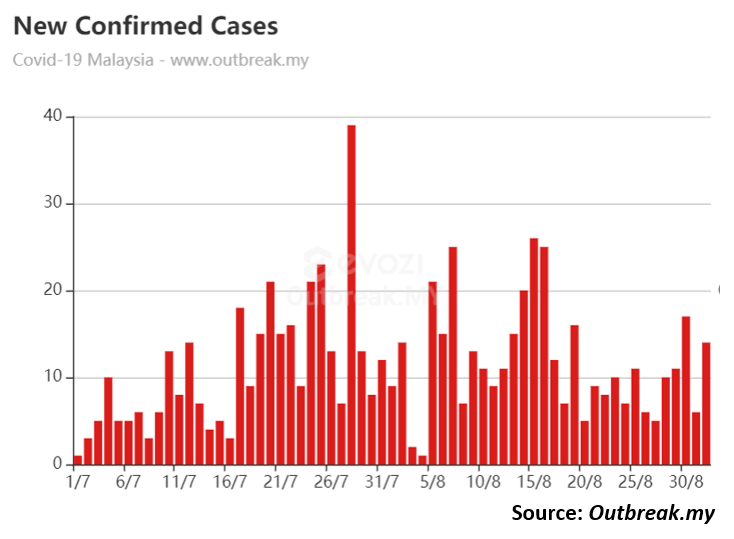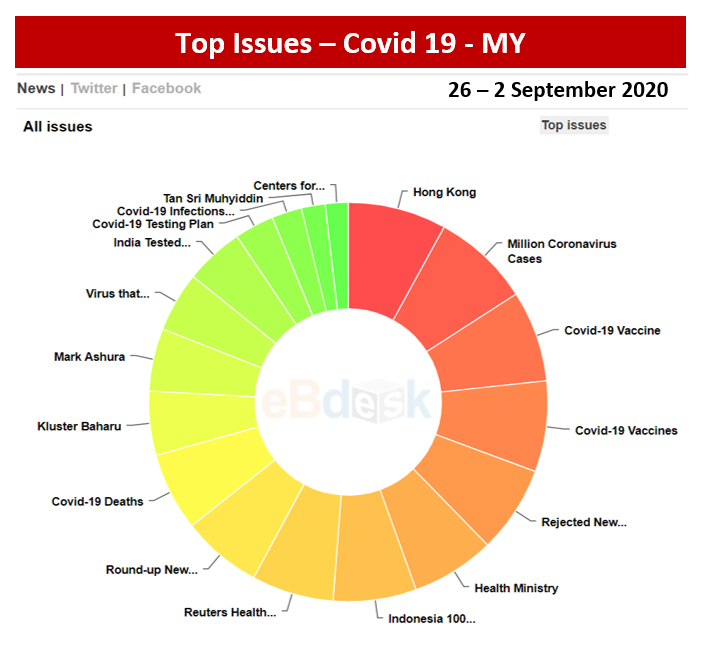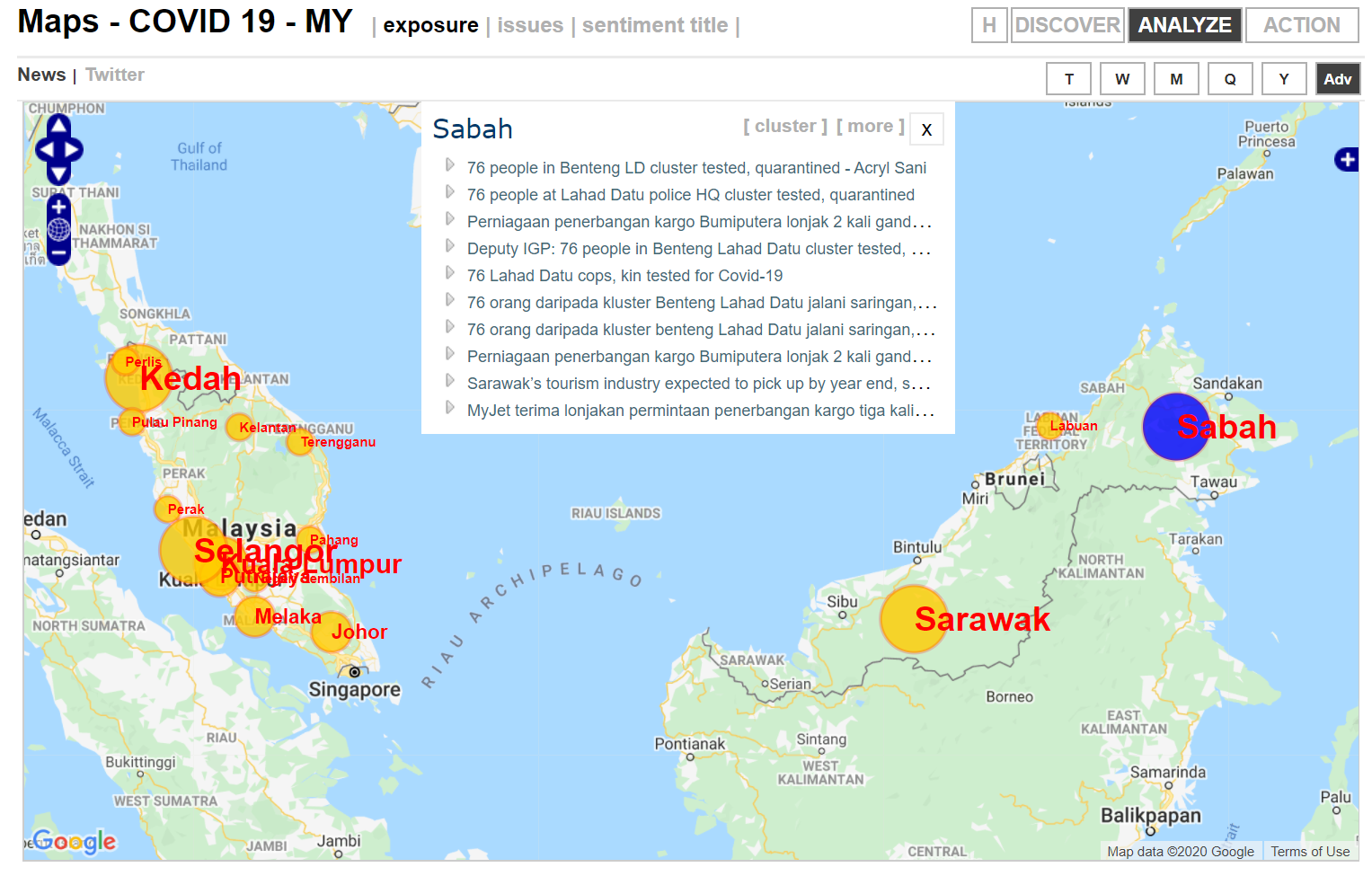Covid-19 crisis: We Are Far from Over

After much anticipation, the Malaysian government recently announced that the Recovery Movement Control Order (RMCO), which was scheduled to end on August 31 will now be extended until the end of the year.
According to Prime Minister, Tan Sri Muhyiddin Yassin, the decision was one made after taking into account the emergence of new clusters across the country, and the number of daily new cases which started to show a worrying trend in July 2020.

In a special address to the nation on August 28, Muhyiddin said that while the country has managed to control the crisis, the ongoing spikes have raised worries that the pandemic has yet to come to an end.
Additionally, the Prime Minister hinted that it would take a long time before Malaysia would be set free from the virus given the current global development of the crisis.

As seen in the top issue chart, international news on the Covid-19 pandemic continues to be largely covered by the Malaysian mainstream media with countries worldwide reporting new infections and deaths.
Meanwhile, in the local setting, new clusters continue to emerge.
Two clusters were reported on August 30 namely the MV Glen Cluster and Telaga Cluster in Selangor and Kedah respectively.
While people were happily celebrating National Day, a new cluster was unfortunately detected on August 31 in Negeri Sembilan, known as Bunga Cluster, believed to involve crewmembers of a ship at Port Dickson.
However, the Ministry of Health Malaysia (MOH) had assured that that it was an isolated cluster, implying that there is no risk of a community infection.

Having said so, the worry does not stop there.
On the first day of the new month, MOH reported yet another cluster, this time in east Malaysia – Sabah.
The new cluster at Lahad Datu border reported seven confirmed cases after 50 new detainees at the Lahad Datu police headquarters were screened for the virus on August 28.
With the rise of news clusters in the country moving in parallel with the current global sentiment of the crisis, MOH predicted that the number of foreign Covid-19 cases would surge starting November, which could trickle down to Malaysia.
What is more worrying is that the recent confirmed cases in Sabah are all asymptomatic.
In a report dated July 8, Health director-general Dr Noor Hisham said that out of the total Covid-19 cases in the country at the time (8,674), 70% cases in Malaysia were asymptomatic.
Prior to this, he shared that people who are asymptomatic appear to have the same viral load as symptomatic cases.
This is a risky indication as it makes the virus much harder to contain while being a silent spreader.
And while screening for symptoms like fever will identify some people with the virus, it won’t be enough to catch everyone.
That is why, it is critical that preventive measures remain in place before a vaccine is produced.

